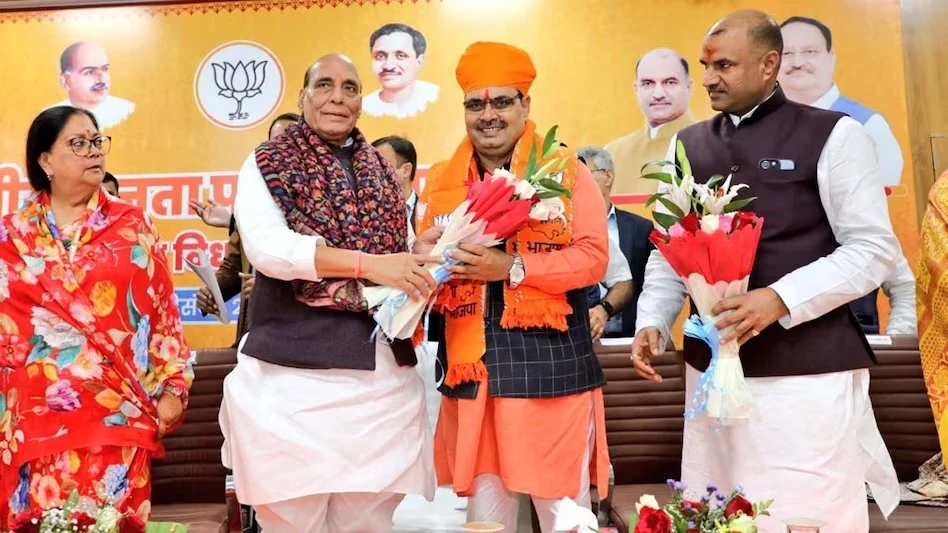CM Bhajanlal Sharma: In an imminent political development in Rajasthan, Bhajanlal Sharma is set to be sworn in as the new Chief Minister, accompanied by Diya Kumari and Prem Chand Bairwa as Deputy Chief Ministers. This new governance team not only brings a fresh political perspective but also a notable array of educational qualifications.
A Ceremonious Oath-taking Event:
Rajasthan is poised for a significant change in its political landscape with the swearing-in ceremony scheduled for Friday, 15 December. Bhajanlal Sharma, the new Chief Minister, along with Diya Kumari and Prem Chand Bairwa as Deputy CMs, are set to take their oaths, marking the beginning of a new governance era in the state.
The Decision of Leadership Roles:
The political discourse prior to the announcement was rife with speculations, particularly regarding Diya Kumari’s potential elevation to the Chief Minister’s post. However, the Bharatiya Janata Party (BJP) ultimately decided on Bhajanlal Sharma for the Chief Ministerial role, with Diya Kumari and Prem Chand Bairwa as his deputies. This trio of leaders is not just politically astute but also brings a wealth of educational experience to the table.
Educational Background of the New Leaders:
The educational qualifications of these leaders were disclosed in affidavits submitted to the Election Commission. Bhajanlal Sharma, the new Chief Minister, boasts a postgraduate degree. Deputy CM Diya Kumari is a fine arts diploma holder from London, while Prem Chand Bairwa holds a PMD degree.
Diya Kumari’s International Education:
Diya Kumari’s educational journey is particularly noteworthy. Her election affidavit reveals that she pursued a Fine Arts Decorative Painting Diploma in 1989 from London and studied at Parsons Art and Design School. Her international education adds a unique dimension to her political and administrative capabilities.
Bhajanlal Sharma’s Academic Path:
Chief Minister Bhajanlal Sharma’s educational trajectory is marked by consistent academic achievements. According to his affidavit, he completed his 10th grade in 1984, followed by 12th in 1986. He then graduated with a BA in 1989 and subsequently obtained his MA degree in 1993. His academic background complements his political acumen, potentially bringing a balanced approach to governance.
